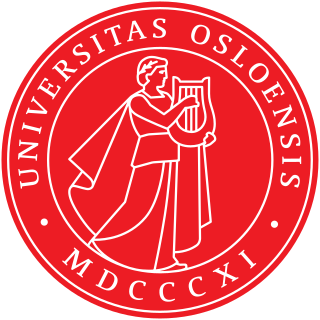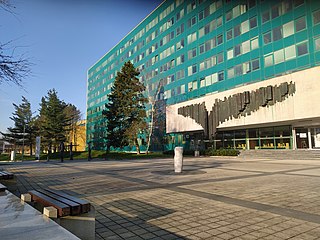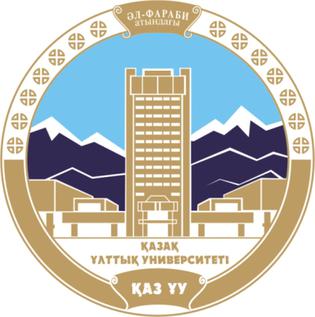Related Research Articles

Labour economics, or labor economics, seeks to understand the functioning and dynamics of the markets for wage labour. Labour is a commodity that is supplied by labourers, usually in exchange for a wage paid by demanding firms. Because these labourers exist as parts of a social, institutional, or political system, labour economics must also account for social, cultural and political variables.
A minimum wage is the lowest remuneration that employers can legally pay their employees—the price floor below which employees may not sell their labor. Most countries had introduced minimum wage legislation by the end of the 20th century. Because minimum wages increase the cost of labor, companies often try to avoid minimum wage laws by using gig workers, by moving labor to locations with lower or nonexistent minimum wages, or by automating job functions. Minimum wage policies can vary significantly between countries or even within a country, with different regions, sectors, or age groups having their own minimum wage rates. These variations are often influenced by factors such as the cost of living, regional economic conditions, and industry-specific factors.

The University of Oslo is a public research university located in Oslo, Norway. It is the oldest university in Norway and consistently considered the country's leading university, one of the highest ranked universities in the Nordic countries and one of world's hundred highest ranked universities. Originally named the Royal Frederick University, the university was established in 1811 as the de facto Norwegian continuation of Denmark-Norway's common university, the University of Copenhagen, with which it shares many traditions. It was named for King Frederick VI of Denmark and Norway, and received its current name in 1939. The university was commonly nicknamed "The Royal Frederick's" before the name change, and informally also referred to simply as Universitetet.
In political philosophy, the means of production refers to the generally necessary assets and resources that enable a society to engage in production. While the exact resources encompassed in the term may vary, it is widely agreed to include the classical factors of production as well as the general infrastructure and capital goods necessary to reproduce stable levels of productivity. It can also be used as an abbreviation of the "means of production and distribution" which additionally includes the logistical distribution and delivery of products, generally through distributors; or as an abbreviation of the "means of production, distribution, and exchange" which further includes the exchange of distributed products, generally to consumers.

A market economy is an economic system in which the decisions regarding investment, production and distribution to the consumers are guided by the price signals created by the forces of supply and demand. The major characteristic of a market economy is the existence of factor markets that play a dominant role in the allocation of capital and the factors of production.

Health economics is a branch of economics concerned with issues related to efficiency, effectiveness, value and behavior in the production and consumption of health and healthcare. Health economics is important in determining how to improve health outcomes and lifestyle patterns through interactions between individuals, healthcare providers and clinical settings. In broad terms, health economists study the functioning of healthcare systems and health-affecting behaviors such as smoking, diabetes, and obesity.
Employment is a relationship between two parties regulating the provision of paid labour services. Usually based on a contract, one party, the employer, which might be a corporation, a not-for-profit organization, a co-operative, or any other entity, pays the other, the employee, in return for carrying out assigned work. Employees work in return for wages, which can be paid on the basis of an hourly rate, by piecework or an annual salary, depending on the type of work an employee does, the prevailing conditions of the sector and the bargaining power between the parties. Employees in some sectors may receive gratuities, bonus payments or stock options. In some types of employment, employees may receive benefits in addition to payment. Benefits may include health insurance, housing, and disability insurance. Employment is typically governed by employment laws, organisation or legal contracts.
A postdoctoral fellow, postdoctoral researcher, or simply postdoc, is a person professionally conducting research after the completion of their doctoral studies. Postdocs most commonly, but not always, have a temporary academic appointment, sometimes in preparation for an academic faculty position. According to data from the US National Science Foundation, the number of holders of PhD in biological sciences who end up in tenure track has consistently dropped from over 50% in 1973 to less than 20% in 2006. They continue their studies or carry out research and further increase expertise in a specialist subject, including integrating a team and acquiring novel skills and research methods. Postdoctoral research is often considered essential while advancing the scholarly mission of the host institution; it is expected to produce relevant publications in peer-reviewed academic journals or conferences. In some countries, postdoctoral research may lead to further formal qualifications or certification, while in other countries, it does not.
The Joseph L. Rotman School of Management is the University of Toronto's graduate business school, located in Downtown Toronto. The University of Toronto has been offering undergraduate courses in commerce and management since 1901, but the business school was formally established in 1950 as the Institute of Business Administration. The name was changed to the Faculty of Management Studies in 1972 and subsequently shortened to the Faculty of Management in 1986. The school was renamed in 1997 after Joseph L. Rotman (1935–2015), its principal benefactor.

A law firm is a business entity formed by one or more lawyers to engage in the practice of law. The primary service rendered by a law firm is to advise clients about their legal rights and responsibilities, and to represent clients in civil or criminal cases, business transactions, and other matters in which legal advice and other assistance are sought.

Recruitment is the overall process of identifying, sourcing, screening, shortlisting, and interviewing candidates for jobs within an organization. Recruitment also is the process involved in choosing people for unpaid roles. Managers, human resource generalists, and recruitment specialists may be tasked with carrying out recruitment, but in some cases, public-sector employment, commercial recruitment agencies, or specialist search consultancies such as Executive search in the case of more senior roles, are used to undertake parts of the process. Internet-based recruitment is now widespread, including the use of artificial intelligence (AI).

Employee benefits and benefits in kind, also called fringe benefits, perquisites, or perks, include various types of non-wage compensation provided to employees in addition to their normal wages or salaries. Instances where an employee exchanges (cash) wages for some other form of benefit is generally referred to as a "salary packaging" or "salary exchange" arrangement. In most countries, most kinds of employee benefits are taxable to at least some degree. Examples of these benefits include: housing furnished or not, with or without free utilities; group insurance ; disability income protection; retirement benefits; daycare; tuition reimbursement; sick leave; vacation ; social security; profit sharing; employer student loan contributions; conveyancing; long service leave; domestic help (servants); and other specialized benefits.

A promotion is the advancement of an employee's rank or position in an organizational hierarchy system. Promotion may be an employee's reward for good performance, i.e., positive appraisal.

In economics, a shortage or excess demand is a situation in which the demand for a product or service exceeds its supply in a market. It is the opposite of an excess supply (surplus).

VSB – Technical University of Ostrava is a university in Ostrava in the Moravian-Silesian Region of the Czech Republic. It is a polytechnic university with a long history of high-quality engineering education and research. The first Fraunhofer Innovation Platform for Applied Artificial Intelligence for Materials and Manufacturing in the Czech Republic was located at VSB - Technical University of Ostrava.

Al-Farabi Kazakh National University (Kazakh: Әл-Фараби атындағы Қазақ ұлттық университеті), also called KazNU or KazGU, is a national research university located in Almaty, Kazakhstan. Named after philosopher and scholar al-Farabi, it is one of the country's largest universities.
Economics of participation is an umbrella term spanning the economic analysis of worker cooperatives, labor-managed firms, profit sharing, gain sharing, employee ownership, employee stock ownership plans, works councils, codetermination, and other mechanisms which employees use to participate in their firm's decision making and financial results.
Academic staff, also known as faculty or academics, are vague terms that describe teachers or research staff of a school, college, university or research institute.
This glossary of economics is a list of definitions of terms and concepts used in economics, its sub-disciplines, and related fields.
The gift-exchange game, also commonly known as the gift exchange dilemma, is a common economic game introduced by George Akerlof and Janet Yellen to model reciprocacy in labor relations. The gift-exchange game simulates a labor-management relationship execution problem in the principal-agent problem in labor economics. The simplest form of the game involves two players – an employee and an employer. The employer first decides whether they should award a higher salary to the employee. The employee then decides whether to reciprocate with a higher level of effort due to the salary increase or not. Like trust games, gift-exchange games are used to study reciprocity for human subject research in social psychology and economics. If the employer pays extra salary and the employee puts in extra effort, then both players are better off than otherwise. The relationship between an investor and an investee has been investigated as the same type of a game.
References
- ↑ O’Boyle, Edward J. (1 December 2001). "Salary compression and inversion in the university workplace". International Journal of Social Economics. 28 (10/11/12): 959–979. doi:10.1108/03068290110404679.